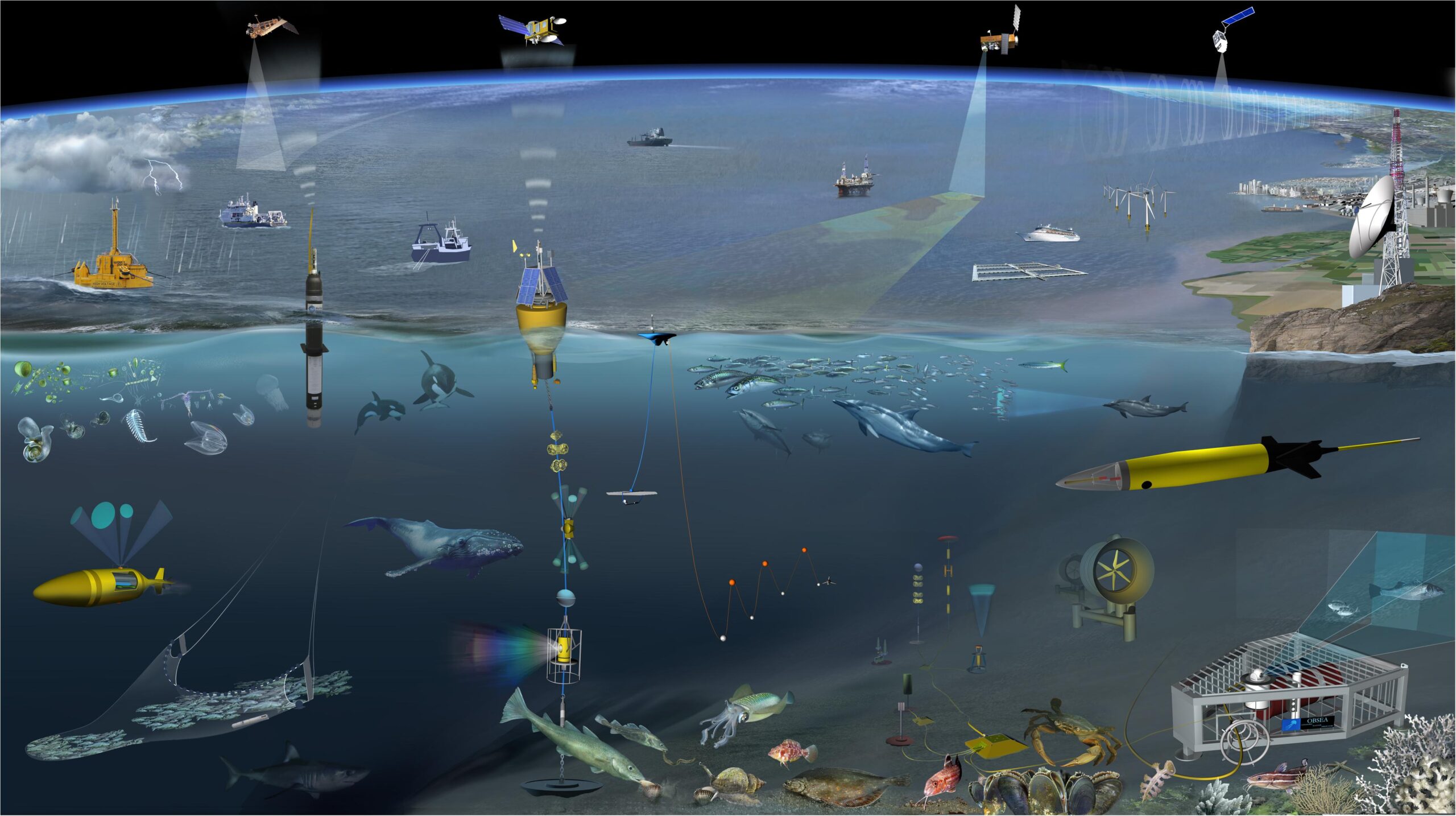The potential for autonomous technology to advance understanding of our constantly evolving ocean and coastlines has taken a major step forward with the launch of the National Centre for Coastal Autonomy.
The UK’s first autonomous fully-integrated coastal observing and monitoring network employs the latest autonomous technologies to drive towards a net zero oceanographic capability, delivering world-leading and cutting edge science.
A fleet of state-of-the-art surface autonomous vessels, sub-surface coastal platforms and sophisticated scientific buoys are integrated on a unique high-speed award-winning marine communications network.
The high resolution data it produces will be made available to policy-makers and other organisations to enable good stewardship and an enhanced understanding of the coastal environment.
It will also deliver a platform to train and develop the next generation of scientists and technologists in partnership with industry and the public sector.
The National Centre for Coastal Autonomy has been founded by the partners in Marine Research Plymouth, comprising the Marine Biological Association, Plymouth Marine Laboratory and the University of Plymouth.
It was officially launched by HRH The Princess Royal during a dedicated visit to the city, where she met representatives from Marine Research Plymouth as well as delegates of the many organisations working in the city’s autonomous marine sector and wider UK, including national funding bodies and policymakers.
Plymouth is already well-established as the UK centre of excellence in the development and application of coastal marine autonomy.
Between them, the partners in Marine Research Plymouth have world-leading capabilities in remote operations, maritime cyber security, assured autonomy, AI and machine learning, advanced navigation as well as the understanding of the marine environment.
This new initiative harnesses that capability to produce monitoring data that can be used across sectors including: offshore renewable energy, aquaculture, defence and address key scientific questions relating to the climate and biodiversity nexus on a global scale.
It builds on the success of innovative and ongoing programmes such as the Western Channel Observatory and Smart Sound Plymouth.
It will also support the UK Government’s net-zero and clean maritime agendas, and expand the nation’s capability to deliver autonomous marine platforms, technology, and research in a safe and sustainable manner.

Professor Icarus Allen, Chief Executive of Plymouth Marine Laboratory, said: “The Centre builds upon Plymouth’s incredible legacy as a world-leading hub for marine science and technology and creates a unique capability in coastal science and net zero oceanography for the UK.
It’s a pioneering initiative to expand the horizons of scientific endeavour using the very latest in technology and innovation. We’re incredibly proud to be a part of it, as we work towards a sustainable ocean future.”

Ben Murray, Chief Executive at Maritime UK, said: “The National Centre for Coastal Autonomy is a fantastic example of how cutting-edge marine technology and innovation can support essential scientific research.
In harnessing and further developing the use of autonomous vessels, the Centre will provide a hugely valuable resource for the UK, supporting growth in the associated technology sector and reinforcing the UK’s credentials as a leader in this field as we work toward our Maritime 2050 ambitions.”















